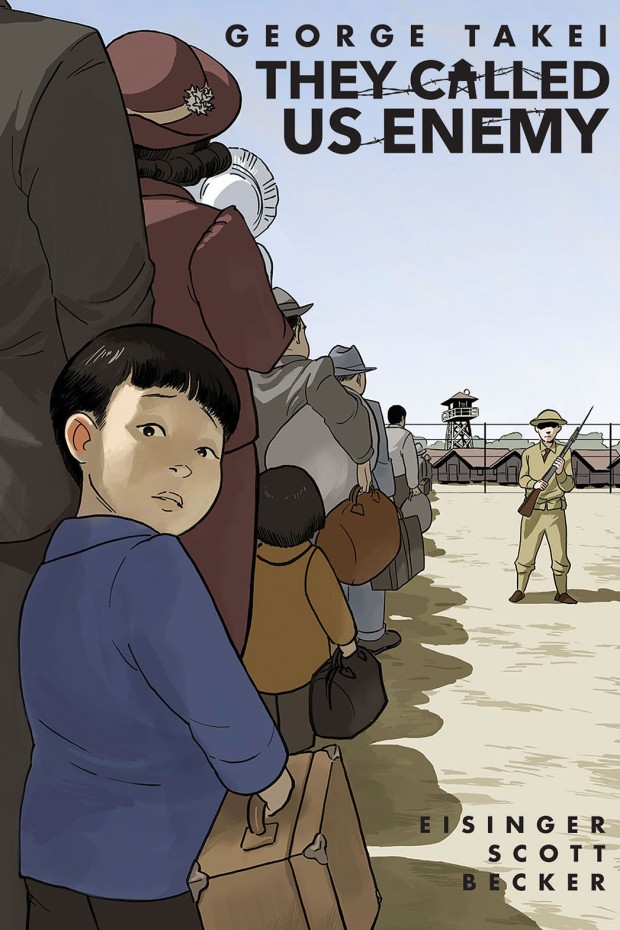by George Takei, Justin Eisinger, Steven Scott, and Harmony Becker
graphic novel
They Called Us Enemy is a painful, heartfelt and compelling memoir. Like March, it’s a must read for every American, especially today. As a student, I never learned about the internment camps (shame on our educational system) and only had cursory knowledge as an adult.
In a nutshell, after the Japanese attacked Pearl Harbor, the US government used fear mongering and racist logic to implicate Japanese Americans as disloyal – even though many were born here, and had never set foot in Japan. They called Japanese Americans unable to assimilate, and enacted legislation that not only assaulted the rights of Americans with a particular ancestry, but also undermined the inherent values in our Constitution. Like so many other families, Takei, his parents and two siblings had to leave their homes, jobs and possessions to live in humiliating and squalid conditions. Takei’s family was forced from Los Angeles to Arkansas, where they lived in two internment camps over three years.
Takei’s memoir feels deeply personal. I liked how Takei (and his writing partners) mostly focus on his childhood experience, but intermittently ‘zoom out’ to focus on political developments, how he processed his experiences with his father as a teen, and using his platform as a celebrity to tell his story. I found the strongest and most affective moments were Takei’s reflections on his parents and what they went through. As a child Takei was shielded from the humiliation, shame, and terrible choices his parents had to make – and yet they went to extraordinary lengths to try to give their children as good a life as possible, considering the terrible circumstances.
Harmony Becker’s art brings Takei’s childhood story to life in a classic black and white manga style. At first, the style might seem disarming, particularly since Takei and his siblings look extremely cute. But as the story progresses, she effectively portrays the emotion, tension and at times physical danger that the Takei family had to endure, particularly with strong facial expressions – also a strength of Japanese manga. The art choices inform the story in all sorts of ways – choosing a Japanese style, and gradations of black and white, especially.
This memoir could not be more timely – and Takei doesn’t shy away from how we are making the same mistakes once again with the concentration camps at the southern border, resulting in traumatizing hundreds of children and families. He draws a clear line between racist and dehumanizing policies (calling out the politicians by name, so history remembers them) and how they irrevocably impacted his family, a powerful commentary for those children today without a voice. I’m grateful that Takei is using his platform to share his story and created this graphic memoir along with his creative team. It is truly a must read for every American and I hope upper grade educators make it part of their curricula.
